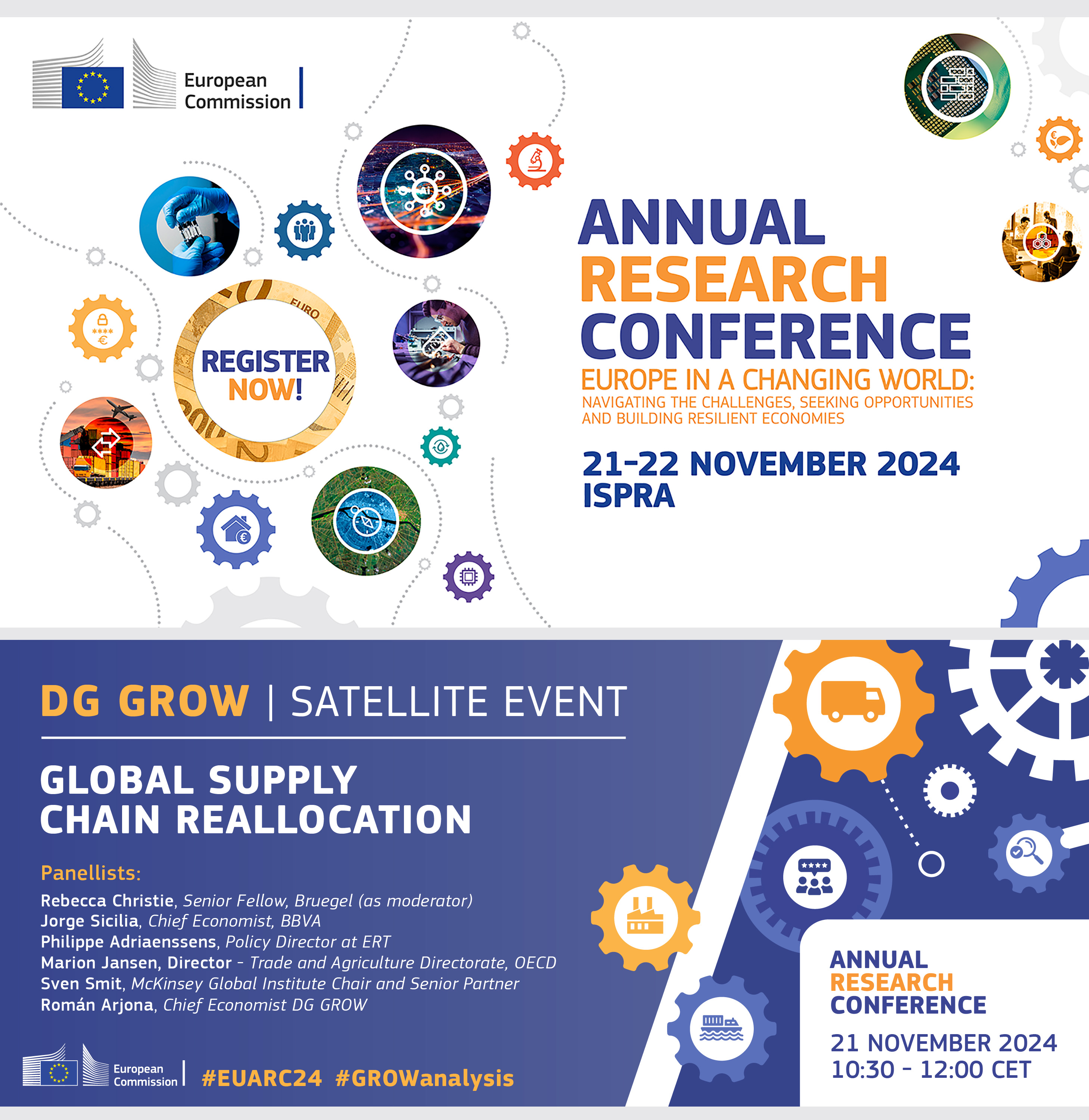Organised by the EU Science, Research and Innovation and EU Economy and Finance, the Annual Research Conference 2024 (21st - 22nd November) at the JRC in Ispra was a highly successful event and an important step forward to establish ARC as a main event that brings together hashtag#academia and European policy-makers and shapers.
The focus of ARC2024 around most pressing policy issues, invited contributions from a wide range of global and European policymaking and research centres (such as, IMF, ECB, BIS, Bank of Lithuania, Sveriges Riksbank, Deutsche Bundesbank, Banco de España, and Federal Reserve Bank of Cleveland) and with the participation of Kalina Manova (from University College London) as Keynote speaker. Kalina Manova is one of the rising superstars of European academia.
The enlightening keynote lecture, along with the lively policy panels and paper presentations/discussions, will surely inspire the research in the next years Likewise, they will be extremely important to inform the work by our policy makers.
Below, links to recordings, programme, speakers bios and presentations and papers presented at the conference.
Recordings
Day 1 - Opening, Parallel session 1-3 & Policy panel
1 - Protectionism and industrial policy
2 - Innovation and knowledge diffusion
3 - Monetary union and energy shocks
Day 2 - Parallel session 4-6 & Keynote speech
4 - Trade and supply chains
5 - Fragmentation and geopolitical risk
6 - Inequality and sustainability
Programme & speakers' bios
- industrial policy | economic policy | supply chain | trade policy | globalisation | EU economic security | euro | Economic and Monetary Union
- Thursday 21 November 2024, 12:00 - Friday 22 November 2024, 14:00 (CET)
- Ispra, Italy
Files
Day 1 - 21/11/24
Day 2 - 22/11/24
Practical information
- When
- Thursday 21 November 2024, 12:00 - Friday 22 November 2024, 14:00 (CET)
- Where
- Joint Research Centre | Ispra, (IT) | and webstreamedVia Enrico Fermi, 2749, 21027 Ispra VA, Italy
- Languages
- English
Description
Europe is facing significant challenges as it seeks to maintain economic stability and adapt to an evolving geopolitical landscape. De-globalisation trends, which have been observed in goods trade and foreign direct investment, but less so in areas like services or innovation, may have complex implications for global value chains, economic efficiency, capital allocation, R&D incentives, and the structural transformations that are needed to achieve climate neutrality.
The COVID-19 pandemic has laid bare the vulnerabilities of global supply chains and the dangers of over-reliance on foreign industries for critical supplies. It has acted as a catalyst for nations to reassess their industrial strategy, specifically in sectors such as healthcare and technology. In the realm of supply chain resilience, industrial policy has emerged as a key tool. By bolstering domestic capabilities and promoting economic diversification, sourcing from multiple geographies and firms, industrial policy can insulate countries from supply chain disruptions, reducing economic vulnerabilities during crises.
Moreover, the escalating geopolitical tensions and looming trade wars have further prompted nations to re-embrace industrial policy. Governments are deploying these strategies to navigate the uncertainties and to secure a competitive edge in strategic sectors such as defence, energy, and artificial intelligence. The European Union itself is reflecting on the positive externalities of Members States investment in defence and on the role of the EU in promoting this investment, while preserving its single market, setting up its first-ever common defence industrial strategy, to enhance Europe's readiness and security.
The EU’s response to these ongoing trends and its position in the new world order may determine its economic potential, welfare, and the development of its single market. Its currency, which this year is celebrating its 25th anniversary, can play an important role in shaping the geopolitical and geoeconomic position of the European Union.
The 25th anniversary of the Euro's introduction prompts a reflection on the ongoing economic research questions surrounding this currency. Adopted by 20 out of the 27 EU member states, the Euro has sparked extensive discussion about its influence on the stability and growth of the Eurozone's economy and its potential international role. A stronger international role for the euro has much to offer, not only to the euro area and the EU but to the whole international monetary system. Ongoing policy initiatives, including the European Banking Union, the European Capital Markets Union, the digital euro and the enlargement of the euro area and the EU can contribute to unlock the full potential of the euro as a dominant currency, which would also bring a stronger influence for the EU at the global stage.
Related links

Contacts
General contact
- ECFIN-JRC-ARC
 ec [dot] europa [dot] eu
ec [dot] europa [dot] eu
